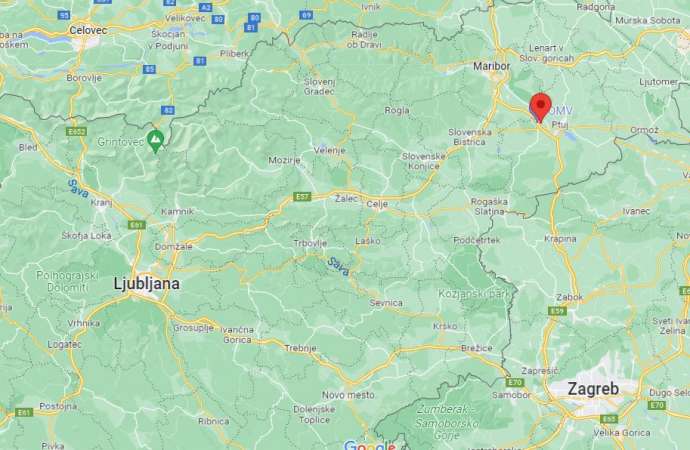In the original trial at the Ptuj District Court, quashed because six instead of just five judges ruled on the case, Silvo Drevenšek had been the first to be sentenced to life imprisonment since the sentence was reintroduced in 2008.
While the 37-year-old, found guilty of three counts of murder, had pleaded guilty in the first trial, he claimed during the retrial that he did not remember the crimes and that they had been the result of his alcohol abuse.
The panel of judges, led by Katja Kolarič, found Drevenšek guilty of all counts, handing him 29 years each for the three murders and four more for the neglect and cruel treatment of a minor. However, the penal code allows for a maximum of 30 years bar a life sentence.
Kolarič said there was no doubt the extremely cruel criminal acts had been premeditated and planned, that "no actual remorse was felt in the trial" and that the son, wider family and community had experienced a major trauma.
The mitigating circumstances listed by Kolarič included the divorce, alcohol and the absence of a previous record, while the judges also said that a sentence to life in prison would have been a "departure from long-standing efforts to humanise criminal sanctions".
The prosecution had again demanded life imprisonment, arguing the defendant had been driven by strong hatred, revenge and material interest - the spouse demanded a division of common assets -, while the defence argued that manslaughter as opposed to murder had occurred and that revenge as a motive and cruel treatment of the victims had not been proven.
A representative of the victims' family has already announced an appeal over the length of the prison sentence. The prosecution has not yet taken a decision, while the defence would not comment.
Drevenšek, whose mental faculties were somewhat but not significantly impairment during the murders, according to expert witnesses, committed the crimes in the Gerečja Vas village in eastern Slovenia.
The murders took place on Christmas Day when Drevenšek entered the house he used to share with his estranged spouse after having agreed to give his son a Christmas gift.
Once he entered the house, he stabbed her with a kitchen knife several times until she bled to death.
After killing his former partner, he entered the neighbouring house, where his son, at the time aged four, was minded by his former partner's parents. He used the same kitchen knife to kill the boy's grandparents.
In the quashed trial, which ended in December 2021, Drevenšek was the first person to be sentenced to life in prison in independent Slovenia.
Until 1998, the highest possible punishment in Slovenia was 20 years in prison. The death penalty was abolished only in 1989 although it was last executed in 1959.
In 1998, the National Assembly amended the penal code to introduce a 30-year prison sentence and life imprisonment was introduced 2008 under a Democrats (SDS)-led government.
Subsequent attempts at abolishing life imprisonment failed, one of the alleged reasons being that they came at a time when terrorism was increasingly becoming a threat.
Slovenian courts have handed down about 20 30-year sentences since 1998 and the prosecution has proposed life in prison in three more cases since 2008, but the courts always opted for milder sentences.
The most notorious case in Slovenian history has been that of serial killer Metod Trobec, who murdered at least five women and was sentenced to death in November 1980 as the last Slovenian defendant to receive the death penalty before it was removed from the criminal code.
The Supreme Court later annulled Trobec's verdict and sentenced him to 20 years in prison. He committed suicide in prison in 2006 while serving an additional 14 years over an attack on a fellow-inmate and an attempted murder.







